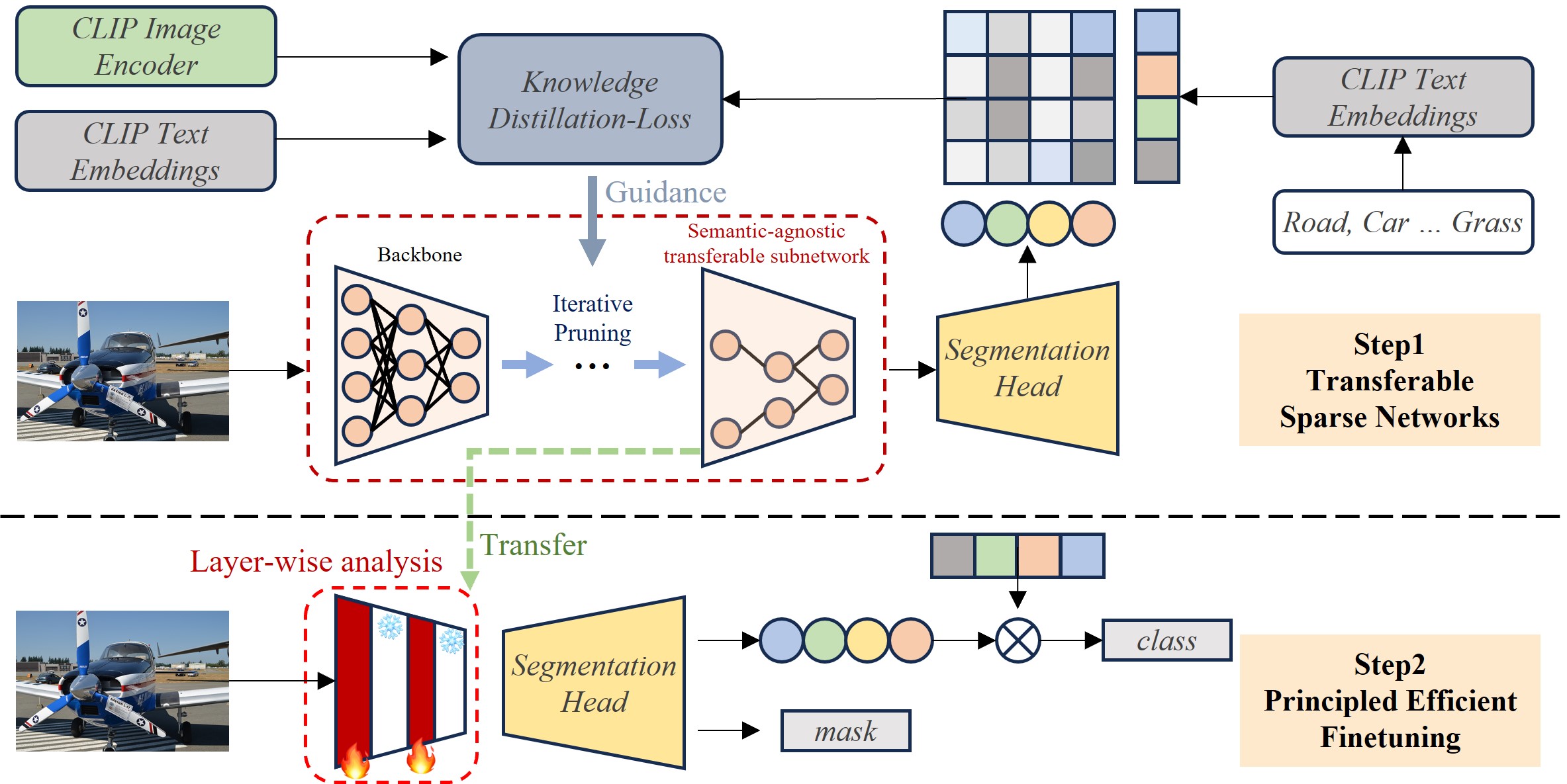Transferable and Principled Efficiency for Open-Vocabulary Segmentation
Recent success of pre-trained foundation vision-language models makes Open-Vocabulary Segmentation (OVS) possible. Despite the promising performance, this approach introduces heavy computational overheads for two challenges: 1) large model sizes of the backbone; 2) expensive costs during the fine-tuning. These challenges hinder this OVS strategy from being widely applicable and affordable in real-world scenarios. Although traditional methods such as model compression and efficient fine-tuning can address these challenges, they often rely on heuristics. This means that their solutions cannot be easily transferred and necessitate re-training on different models, which comes at a cost. In the context of efficient OVS, we target achieving performance that is comparable to or even better than prior OVS works based on large vision-language foundation models, by utilizing smaller models that incur lower training costs. The core strategy is to make our efficiency principled and thus seamlessly transferable from one OVS framework to others without further customization. Comprehensive experiments on diverse OVS benchmarks demonstrate our superior trade-off between segmentation accuracy and computation costs over previous works. Our code is available on https://github.com/Xujxyang/OpenTrans
PDF Abstract


 MS COCO
MS COCO
 Cityscapes
Cityscapes
 PASCAL Context
PASCAL Context